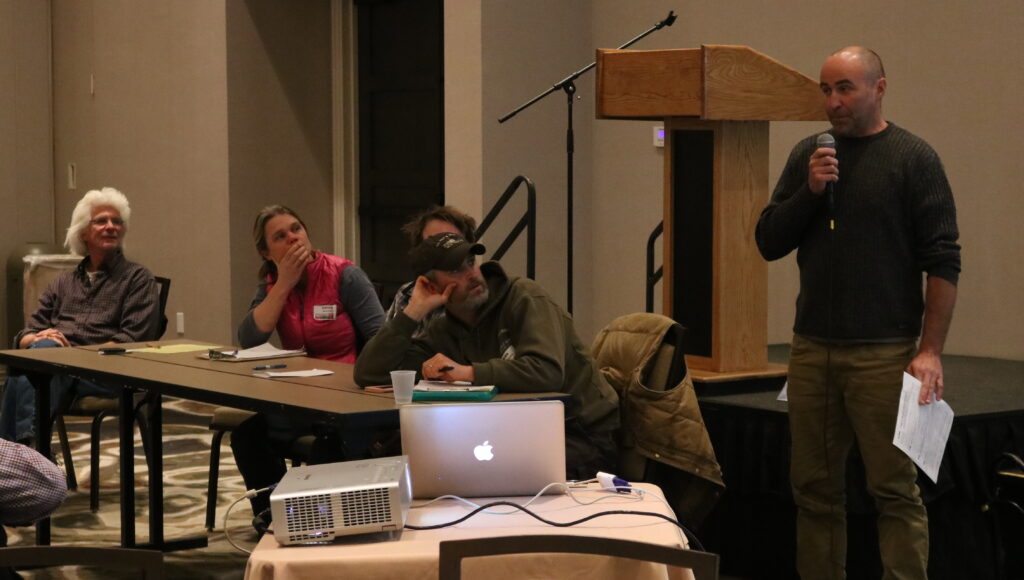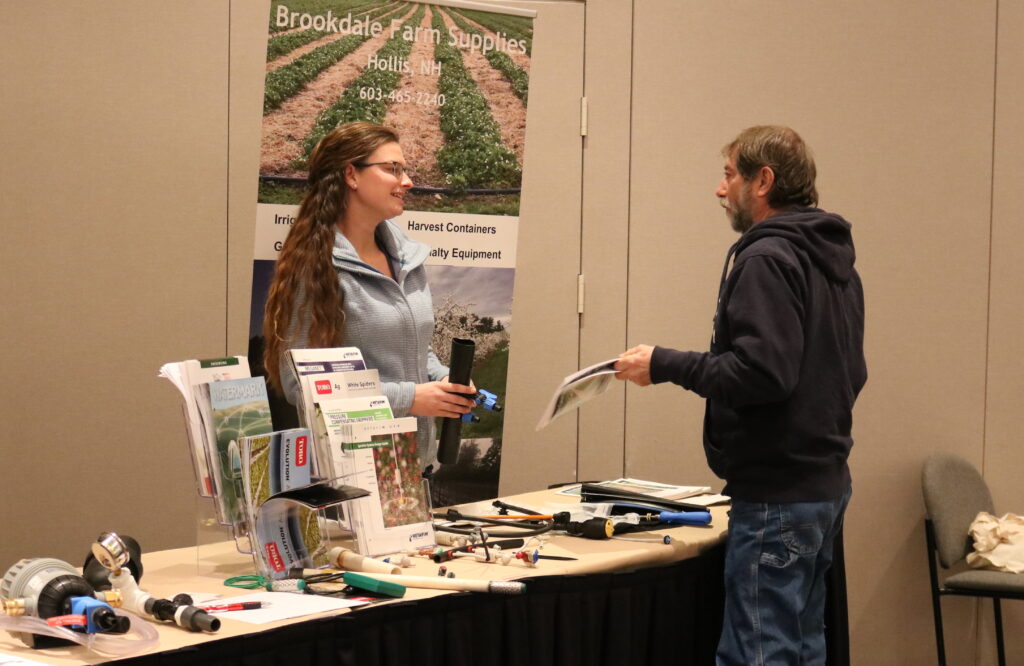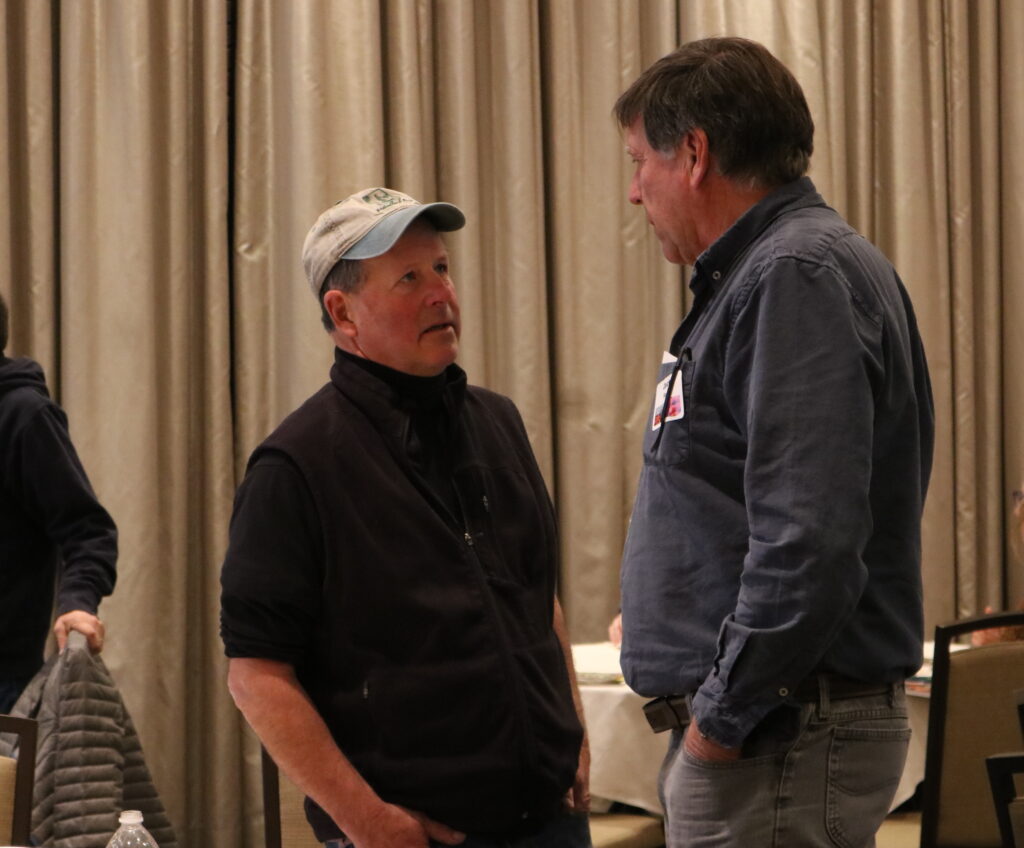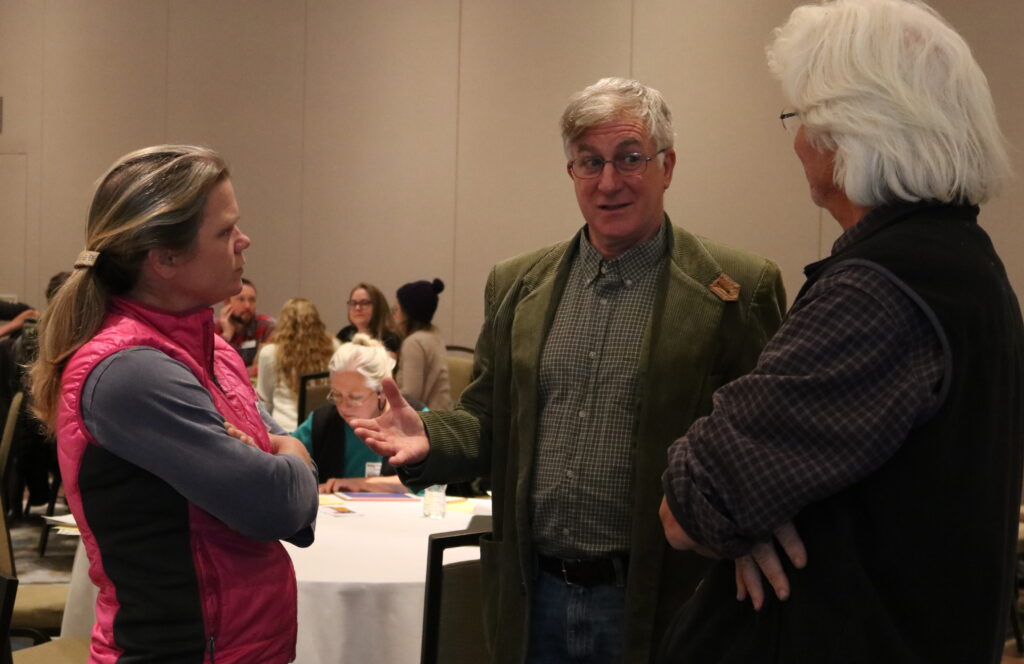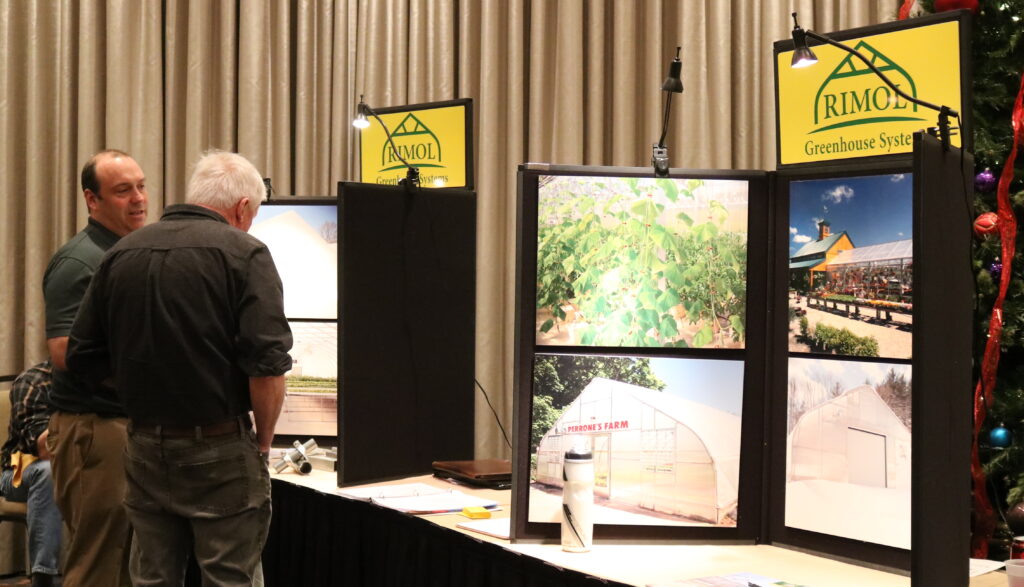 Andy ventured down to the high tunnel conference hosted in Manchester, NH on December 4th to expand his knowledge on protected culture. This program was co-sponsored by the Universities of Maine, New Hampshire and Vermont and the Maine Organic Farmers’ and Gardeners’ Association, and was supported by Northeast SARE project LNE 15-343. His notes follow.
Andy ventured down to the high tunnel conference hosted in Manchester, NH on December 4th to expand his knowledge on protected culture. This program was co-sponsored by the Universities of Maine, New Hampshire and Vermont and the Maine Organic Farmers’ and Gardeners’ Association, and was supported by Northeast SARE project LNE 15-343. His notes follow.
I wasn’t able to attend day one which was mostly pest and diseases. I did attend the second day which included more practice-specific information. The conference was filled with farmers and detailed information about growing under high tunnels. It was great to see many familiar faces, mostly cheery now that things have mostly slowed down and seed catalogs are arriving in the mail full of hopes and dreams.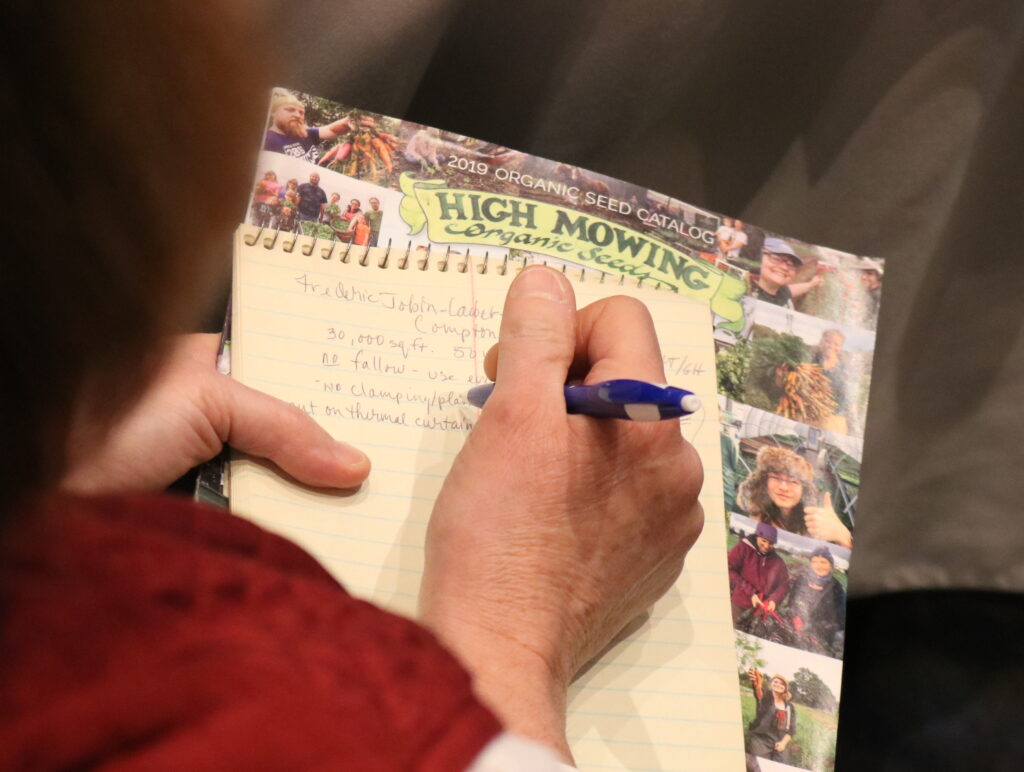
The day started off with Vern Grubinger (UVM Extension and VVBGA) talking about the history of high tunnels, followed by every single different type or construction practice he’s seen. The list is long, and it covers everything as simple as a DIY caterpillar tunnel to a fully automated and digitally monitored greenhouse system. It was pretty nice to see many different features and options collated and presented together.
If you’d like to take a peek at the presentations they are posted here: https://extension.unh.edu/blog/2018-high-tunnel-conference-presentations-available
There were quick lightning rounds with short presentations sharing new research projects like saffron, scouting, and soil moisture. A couple takeaways:
- Using shade cloth in the doorway is a useful curtain to keep birds out
- Potted plants actually need less water than they probably are provided
- Wrapping baseboard rigid insulation in roofing flashing makes it durable for rodent pressure or weedwhackers!
- A presentation on water usage shared that many farms have no idea how much water they use and “pulse irrigation” (shorter more frequent watering) may be better for the plants, the soil, and the systems. This is a take away that I will put into practice, especially having a well with low flow it would be better to water smaller amounts more frequently than flooding hundreds of gallons in the evening that can wash away nutrients and promote diseases while the soil and plants sit saturated overnight.
The afternoon included a grower panel which is always fun. The panel discussed topics like mulch practices and most profitable crops. The top crops were noted as #1 Tomatoes and #2 Winter Greens! If you keep good records of the time you put into the crops, the prices you ask for them, and the number of successions planted you can analyze the highest value crops for your farm.
It’s rare that I go someplace without a camera, so here are a few shots I shot at the conference.
-Andy
